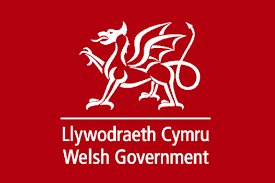BDUK vouchers and 5G testbeds updates
BDUK pilots a new consumer-led approach for Rural Gigabit Broadband Voucher Scheme
BDUK has announced a new website to enable a consumer-led approach to make it clearer to residents and small businesses how they can access the Rural Gigabit Broadband Voucher Scheme. Currently, the Scheme is supplier-led. This means suppliers request the voucher on behalf of their customers. The value of the voucher contributes to the build cost of installing a gigabit-capable connection at the customer’s premises.
Gigabit broadband vouchers are a one-off contribution to homes and small to medium-sized businesses that want to install a faster, more reliable connection over gigabit-capable infrastructure in group projects. Organised by Building Digital UK (BDUK) and funded by DCMS, the programme is tasked with delivering broadband networks to the nation.
The website now enables individuals or communities to register their interest in getting a voucher, makes this visible for suppliers and enables them to express interest in providing a service. Programme Director Justin Leese stated that: “So, whilst remaining supplier agnostic we essentially walk the customers up one side of the hill, the suppliers up the other side and let them make their own introductions at the top!” via LinkedIn. The Broadband Upgrade Fund is a pilot campaign available to rural premises in Cornwall, Carmarthenshire, Ceredigion, Pembrokeshire, Cumbria and Northumberland.
Funding boost for UK tech innovators to seize opportunities of 5G technology
Government has announced its funding awards for the next wave of research and development projects utilising 5G technology. Projects in Sunderland, Preston, Liverpool, Manchester, Brighton and Suffolk will test what next-gen mobile connectivity can do for UK industries. The winning initiatives include:
- BT Sport: 5G Edge-XR will demonstrate how 5G networks, coupled with cloud graphics processing units, could enable people to view immersive sporting events from all angles across a broader range of devices including smartphones, tablets, AR and VR headsets and TVs. It will also help realise the vision and potential of 5G networks to create new opportunities for UK businesses at home and internationally, and encourage inward investment.
- Liverpool 5G create: A group of local healthcare bodies, the University of Liverpool, BluWireless (a UK 5G kit vendor) Broadway Partners (a small UK mobile operator) will build a 5G network designed to benefit local NHS, social care services and other public bodies in a post-Covid-19 world, using private 5G networks to develop affordable connectivity for remote health and social care, improving future resilience and reducing inequalities that arise from lack of affordable access.
- 5G FoF (Factory of the Future): BAE , Advanced Manufacturing Catapult and IBM will lead a large project in Preston that ultimately aims to deliver the Tempest fighter jet at half its current cost, and to drive UK global manufacturing competitiveness.
- 5G Festival: how 5G can enable the empowerment of the music industry to bring live festivals and music events to audiences no matter where they are in the world, driving new experiences from the home as well as major venues such as the Brighton Dome and the 02 Arena, using most advanced 5G facilities by Digital Catapult and Telefonica.
- Smart Junctions 5G: Visionable, Weaver Labs (both UK SMEs) and Transport for Greater Manchester aim to deliver AI traffic control systems to reduce congestion and pollution as well as improving productivity by cutting waiting times at traffic signals.
- 5G CAVL: 5G CAL will deliver a huge stride forward in Connected and Automated Logistics (CAL), taking 5G enabled solutions out of the testbed into an operational manufacturing environment. As with 5G FoF, this project is about driving operational efficiencies and improving productivity, to develop a globally unique centre of excellence and operational test facility for CAL at the Nissan Sunderland site.
Launched in April, 5G Create called for proposals from sectors where the UK has a competitive advantage to use the unprecedented speed, coverage and capacity of 5G to explore and develop new commercial opportunities for it can be used for – including new prototype technologies, use-cases and business models – which could then be scaled up, used across the economy and exported.
The projects will receive a share of £30 million through 5G Create, an open competition combining British creativity with innovative new uses for 5G as part of the wider £200 million 5G Testbeds and Trials programme (5GTT).





